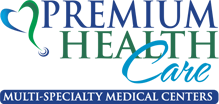Celebrating National Health Center Week
Honoring Community Health Centers
Every August, communities across the United States come together to celebrate National Health Center Week (NHCW), a time dedicated to recognizing the vital role that Community Health Centers (CHCs) play in providing accessible, affordable, and high-quality healthcare. These centers are a lifeline for millions of Americans, offering essential health services regardless of patients’ ability to pay.
The Role of Community Health Centers
Community Health Centers are non-profit, patient-directed organizations that serve as comprehensive healthcare providers in underserved areas. They are committed to reducing health disparities by offering a wide range of services, including primary care, dental care, mental health services, and more. Here’s why CHCs are so crucial
Accessibility
CHCs provide care to individuals regardless of their insurance status or ability to pay. They operate on a sliding fee scale, making healthcare accessible to all, including the uninsured and underinsured.
Comprehensive Care
CHCs offer a full spectrum of services under one roof. This approach includes preventive care, chronic disease management, dental services, mental health counseling, substance abuse treatment, and more.
Community-Centered
These centers are rooted in the communities they serve. They are governed by a board of directors, the majority of whom are patients, ensuring that the care provided aligns with the community’s needs.
Cultural Competency
CHCs are known for their culturally and linguistically appropriate services. They employ staff from diverse backgrounds who understand the unique cultural and social dynamics of the communities they serve.
Economic Impact
Beyond healthcare, CHCs are economic engines in their communities. They create jobs, support local businesses, and contribute to the economic stability of the area.
Annual Physical Exams
Annual physical exams are more than just a requirement for sports or school activities; they are a comprehensive assessment of a child’s overall health. These exams provide an opportunity for healthcare providers to evaluate physical development, check for any underlying health conditions, and address any concerns.
During a physical exam, the doctor will:
- Assess Growth and Development: Tracking height, weight, and other vital signs helps ensure children are growing appropriately for their age. It also allows for early detection of potential issues such as obesity or growth delays.
- Review Medical History: Updating medical history helps the provider understand any changes in the child’s health, including allergies, medications, and family medical history.
- Conduct a Physical Examination: The provider will check the heart, lungs, abdomen, skin, and other areas to identify any abnormalities. They may also perform screenings for hearing and vision.
- Discuss Health and Wellness: This is an excellent opportunity to discuss topics such as nutrition, exercise, sleep, and mental health. It allows the provider to offer guidance on healthy habits that can positively impact the child’s academic performance and overall well-being.
The Impact of Health Centers
Serving Millions: CHCs serve over 30 million people annually, including one in 12 Americans and one in nine children. They provide care to vulnerable populations, including those experiencing homelessness, agricultural workers, and veterans.
Reducing Health Disparities: By offering affordable and accessible care, CHCs help reduce health disparities and improve health outcomes. They focus on preventive care, reducing the need for costly emergency room visits and hospitalizations.
Pandemic Response: During the COVID-19 pandemic, CHCs played a critical role in providing testing, vaccinations, and treatment. They continued to serve patients, adapting quickly to telehealth services and ensuring continuity of care.
Celebrating National Health Center Week
National Health Center Week is an opportunity to recognize and celebrate the invaluable contributions of CHCs to the health and well-being of our communities. It’s also a time to raise awareness about the challenges they face and the importance of continued support and investment in these essential institutions.
Throughout the week, CHCs host various events and activities, including health fairs, free screenings, community outreach, and educational sessions. These events aim to engage the community, educate the public about available services, and honor the dedicated staff and volunteers who work tirelessly to provide care.
How You Can Get Involved
There are many ways to participate in National Health Center Week and support your local Community Health Center:
- Attend Events: Participate in local events and activities hosted by CHCs. These are great opportunities to learn more about the services offered and engage with healthcare professionals.
- Volunteer: Many CHCs rely on volunteers to assist with various tasks. Whether you’re a healthcare professional or simply passionate about helping others, your time and skills can make a difference.
- Advocate: Support policies that promote funding and resources for CHCs. Contact your local representatives and express the importance of these centers in your community.
- Donate: Consider making a financial contribution to your local CHC. Donations help fund essential services and ensure that care remains accessible to all.
- Spread the Word: Use social media and other platforms to share information about National Health Center Week and the vital work of CHCs. The more people know, the more support these centers can receive.


